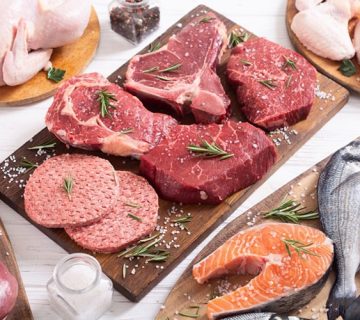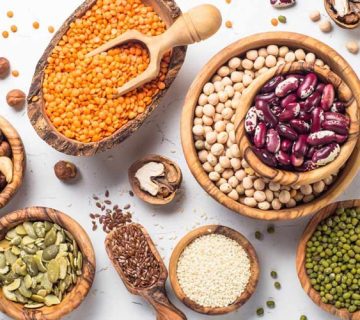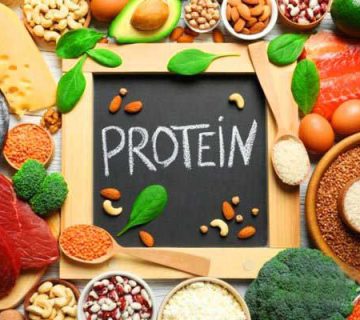What are the nutritional benefits of textured vegetable protein?
Although a carnivorous diet can be healthy, it may lack many of the important nutrients specific to plant protein. Getting protein from foods rich in texture vegetable protein can provide some of the vitamins and micronutrients that meat does not offer.
Vitamin C
Vitamin C, which is important as an antioxidant for the immune system, and it also involved in protein metabolism and is essential for the absorption of nonheme iron in plant foods, which found in many plant foods. Plant tissue is abundant, but not abundant in animal foods. The USDA recommends 75 mg of vitamin C for adult female and 90 mg for male a day. Inadequate intake of vitamin C in the diet may lead to iron deficiency anemia.
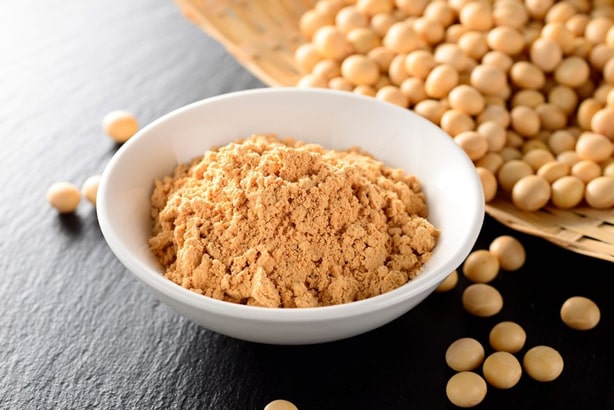
Isoflavones:
Flavonoids are a diverse group of plant nutrients found only in plants. Texture vegetable protein and its products, including tofu, tempeh, miso and edamam, are the richest and most concentrated sources of these powerful antioxidants, says the Linus Pauling Institute. Of these, green texture vegetable protein or edamame contains the highest amount – 138 mg in 4.3 cups – followed by cooked texture vegetable protein, with 81 mg per 3/4 cups contain the highest amount of isoflavones.
Dietary flavonoids have been studied extensively for their role in improving health and preventing disease. A study published in the journal Medicines in 2017 reported that intake of texture vegetable protein in the early stages of life may prevent breast cancer in adulthood.
According to a 2014 study in the British Journal of Nutrition, it is proved that the anti-inflammatory and immune-boosting benefits of flavonoids in plants may be a factor in reducing the risk of cardiovascular disease.
In addition, the antioxidants in soy isoflavones have been related to a reduced risk of certain cancers, including prostate cancer.
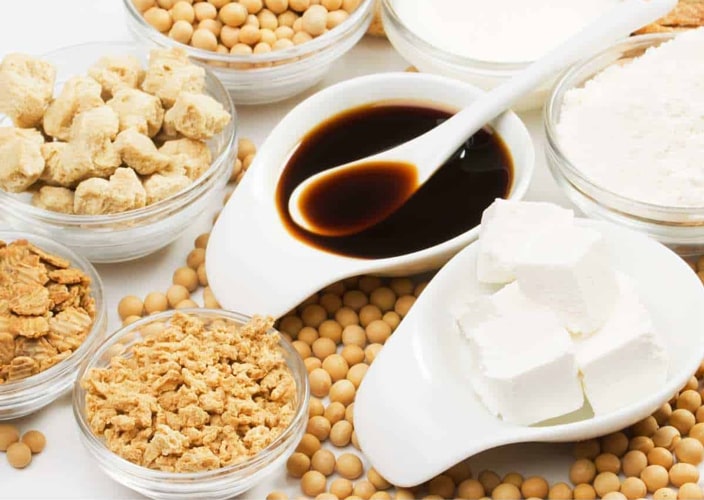
Dietary fiber
Dietary fiber is defined as the part of food that is not digestible and is formed into a concentrated food that contributes to the health of your digestive system. Fiber can prevent constipation and diarrhea.
Dietary guidelines recommend a daily intake of 28 to 33.6 grams for male and 22.4 to 28 grams for female, depending on their age. Plant foods, including soy, are rich in fiber, but meat does not provide a significant amount of fiber.
Fiber helps you feel full after a meal, which helps you eat less. In a 2017 study published in the Journal of Nutrition and Metabolism, high fiber intake promotes weight loss management.
In addition, the researchers analyzed 22 cohort studies and found that the more fiber intake, the less you have the risk of cardiovascular disease and coronary heart disease. These results were published in BMJ in 2013.
Comparison of the effect on cholesterol
Plants do not have cholesterol. Although meat sources provide complete protein, their high cholesterol levels may cause the health risk for people who smoke, have high blood pressure, diabetes or heart disease.
Because cholesterol is needed to build healthy cells in the body, the USDA has not set a maximum amount for cholesterol intake. However, the American Heart Association (AHA) warns that intake too much fat can cause health problems for some people. Excess LDL, or “bad” cholesterol, can build up on the inner walls of arteries or blood vessels and reduce the amount of blood and oxygen the heart and brain receive.
The AHA recommends replacing foods high in animal fats with foods high in texture vegetable protein can be beneficial for heart. Evidence suggests that texture vegetable protein may even help lowering cholesterol.
A 2015 report from Health Canada Food Directorate included 79 previous studies in a meta-analysis comparing texture vegetable protein content with animal protein sources. The aim of this study was to evaluate the levels of total cholesterol, LDL, HDL and triglycerides.
Researchers found total cholesterol and LDL reduction in a high percentage of studies in a group that consumed texture vegetable protein. The findings also illustrated a significant increase in HDL and a decrease in triglyceride levels in the overall analysis. The Health Canada also concluded that their scientific evidence supports the claim that texture vegetable protein can reduce the cholesterol.




